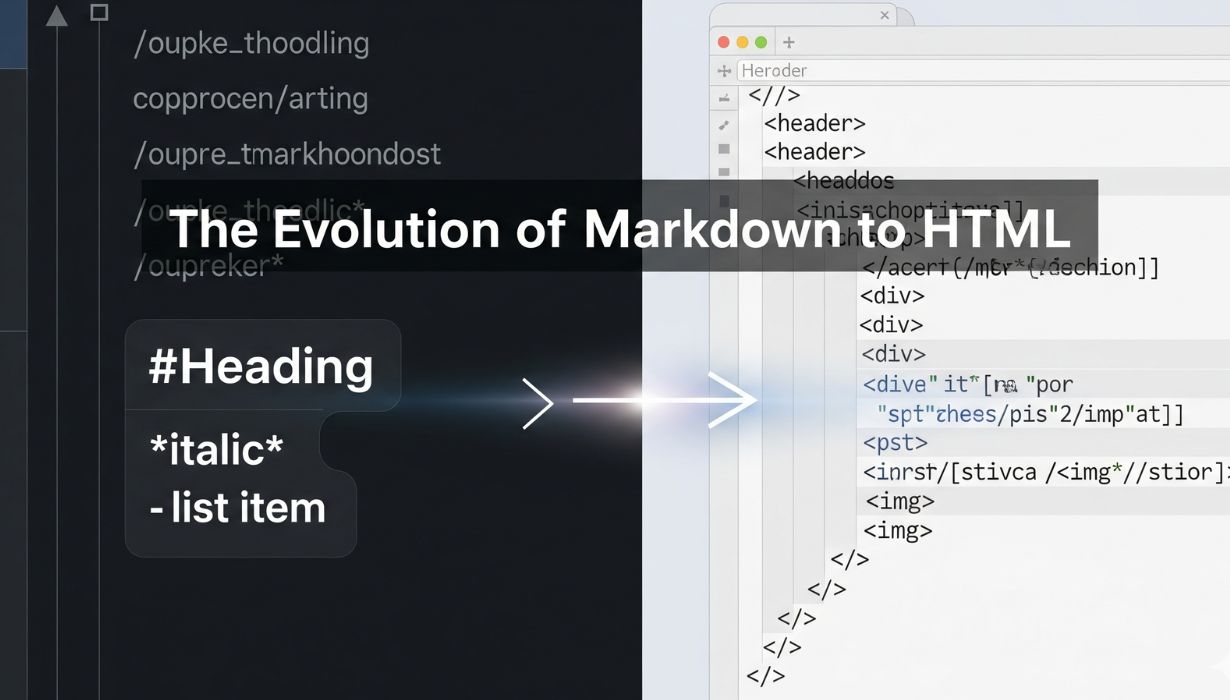
27
Markdown to HTML A Complete Guide to ConversionTool and Best Practices
Convert Markdown to HTML easily with tools editors and libraries Learn syntax benefits SEO tip and best practices for clean and styled HTML output
The Evolution of Markdown to HTML
Markdown was born as a writer friendly syntax but its popularity exploded once developers realized how efficient it was for web publishing. Before Markdown content creators had to write every paragraph heading and link in raw HTML which often felt tedious and error-prone
With the rise of blogs GitHub repositories and online documentation Markdown became the bridge between simple writing and clean HTML output. Today almost every developer toolchain has a Markdown-to-HTML component built in
Markdown vs HTML Which One Should You Use
It’s common for new writers to wonder Why not just write in HTML from the start The answer depends on the use case
Markdown Advantages
Easier to write and read
Portable across multiple platforms
Requires no technical expertise
HTML Advantages
Complete control over structure and design
Better for complex layouts
Fully supported by browsers without conversion
The smart approach Write in Markdown convert to HTML then style with CSS This wokflow combines the strengths of both worlds
Tools That Simplify Markdown to HTML Conversion
If you don’t want to code or handle conversions manually many tools make the process seamless
Static Site Generators SSGs Jekyll Hugo, and Gatsby automatically parse Markdown into HTML when building websites
CMS Platforms Content management systems like WordPress allow Markdown plugins to convert text into HTML during publishing
Command-Line Utilities Tools like pandoc convert Markdown files into multiple formats including HTML and PDF
Integrated Editors Applications like Obsidian and Typora show a live HTML preview while you write in Markdown
These tools reduce friction allowing you to focus on writing instead of worrying about syntax
Styling Converted HTML with CSS
Markdown on its own doesn’t include design Once you convert it to HTML you can apply Cascading Style Sheets CSS to make your content look professional
Common Use Cases of Markdown to HTML
Personal Blogs
Write posts in Markdown, export as HTML, publish instantly
Project Documentation
Developers keep README.md files in Markdown, which GitHub renders as HTML
Knowledge Bases & Wikis
Teams maintain notes in Markdown and convert them into searchable, styled HTML docs
Newsletters & E-Learning
Markdown ensures quick writing while HTML makes the final version email and web ready
Advanced Tips for Markdown to HTML Conversion
Use Extensions
Add Markdown plugins to support tables diagrams, or mathematical formulas
Batch Processing
Automate multiple file converions with command line tools or scripts
Metadata for SEO
After conversion enrich your HTML with title meta description and tags
Accessibility Improvements
Always check that images include alt attributes after conversion
The Future of Markdown to HTML
With the growth of headless CMS platforms, static sites, and developer documentation, Markdown to HTML conversion is becoming even more important Many platforms now treat Markdown as the “source of truth” and handle conversion behind the scenes
In the future, we can expect
More Markdown extensions for interactive elements
AI-assisted Markdown editors that generate HTML instantly
Deeper integration with publishing workflows
Final Thoughts
Markdown to HTML is not just a technical process it’s a productivity strategy By writing in Markdown you save time reduce errors and stay focused on content By converting to HTML you unlock browser compatibility SEO benefits and full control over design
Whether you’re a developer building documentation a blogger managing content, or a student writing noteslearning how to convert Markdown to HTML will make your workflow faster and more efficient
Contact
Missing something?
Feel free to request missing tools or give some feedback using our contact form.
Contact Us